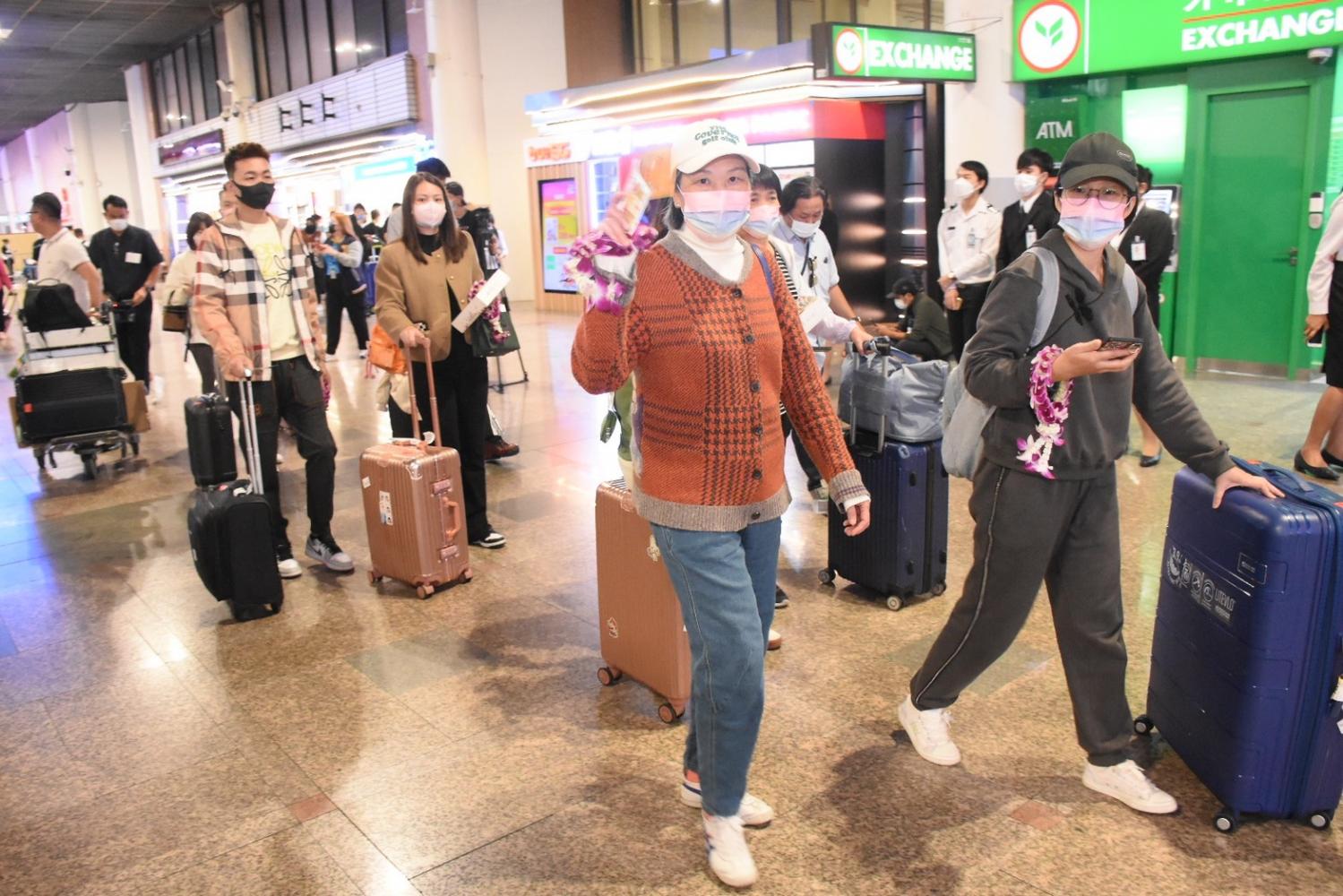
Thailand's tourism and exports of chemical products and plastic pellets are expected to decline because of the Chinese economic slowdown, according to the latest study by the Commerce Ministry's planning unit.
Poonpong Naiyanapakorn, director-general of the Trade Policy and Strategy Office (TPSO), said the liquidity crunch in China's real estate sector is a major concern for the economy, hampering its recovery after Beijing lifted strict measures to control the spread of Covid-19.
Real estate businesses in China mostly utilise extensive borrowing for a high volume of projects. This creates risk for a property bubble, Mr Poonpong said.
Earlier this month, the People's Bank of China announced the "Three Red Lines" criteria aimed at reducing the risk of a property bubble and restraining the expansion of debt in the real estate business. Only 6.3% of Chinese real estate businesses met these criteria, making it nearly impossible for most businesses to borrow more money to operate.
Combined with reduced sales during the pandemic, many businesses faced severe financial difficulties, including major player Evergrande.
Evergrande has more than 1,300 projects, accounting for almost 25% of China's economy, making it one of the most heavily indebted companies globally. It filed for bankruptcy earlier this month. Additionally, Country Garden, China's top real estate business, is showing signs of defaulting on dollar-denominated bond interest payments.
Given the immense size of the real estate sector, which contributes about 29% of China's GDP, its troubles have far-reaching consequences for the Chinese economy. In the second quarter of this year, the economy expanded by only 0.8% from the first quarter.
This has also affected the financial status of the population since around 70% of urban residents invest in real estate for income and investment, and plummeting real estate prices lead to significant financial losses.
The real estate slump has also impacted the labour market, as the construction sector is a major job provider of over 62 million positions. Those jobs may be subject to elimination while new job opportunities have dwindled, especially for new graduates who have suffered due to reduced real estate investments since 2022, according to the TPSO's study.
Retail sales of home-related goods, particularly home decor, saw a significant decline from January to July.
According to Mr Poonpong, the consequences of these events have also hit the Thai economy, particularly affecting tourism and consumer spending on overseas travel among the Chinese, as well as other knock-on effects.
The tourism sector of Thailand has been impacted due to the fact that Chinese tourists previously constituted about 28% of the total number of visitors entering the country. In 2019, 11.1 million Chinese tourists visited Thailand, generating revenue of 530 billion baht.
However, in the first half of 2023, only 1.4 million Chinese tourists visited Thailand, indicating a significant decline in numbers.
Furthermore, the export sector has been affected through a number of channels, including reduced purchasing power of Chinese consumers due to the economic slowdown caused by the sluggish real estate sector; and impacts on exports of certain raw materials due to China's real estate issues, particularly chemical products (used in construction) and plastic pellets.
Other products related to construction, such as steel and steel products, aluminium products, machinery used in construction, and cement and plastic products, are unlikely to be much impacted as China is not a major export market for Thailand.
Nevertheless, Mr Poonpong said that as China is a major consumer and importer of commodities such as steel, copper and gold, the country's economic slowdown may result in volatile prices of those products, impacting Thailand as a price taker.
He advised Thai entrepreneurs to closely monitor the real estate situation in China as it significantly affects the country's economic recovery, which in turn impacts Thailand's economy, particularly in terms of tourism and international trade.
In the case of trade, China is Thailand's top trading partner and the second-largest export market, representing about 12% of Thailand's total export value. Therefore, the Chinese economic situation has significant implications for Thailand's export sector, Mr Poonpong said.